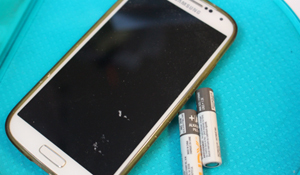Sunday July 25, 2021 | GREATER VICTORIA, BC
by Mary P Brooke, Editor | Island Social Trends
Some items are just a bit more complicated to dispose of responsibly than others.
The curb side blue box is easy for things like paper and cardboard, regular household plastics, cans and jars (though remember, glass jars must be separated in their own container with a special pink label available free from the CRD).
But then there are items considered to be hazardous, and those take a bit more organized planning.
Items like batteries, electronics (including cellphones and laptops), propane cylinders, pesticides, paint and motor oil are recyclable but they do not belong in the residential curbside blue box or household garbage.
When improperly disposed of these items are hazardous, says CRD. That’s because they contaminate recycling, are harmful to the environment and may cause explosions and fires in collection vehicles, at the landfill and recycling facilities. Help keep workers and the environment safe by properly disposing of hazardous materials.
There are several locations in Greater Victoria (and across the province) where materials such as batteries, paints, solvents, pesticides, gasoline, oil and antifreeze as well as pharmaceuticals can be dropped off for free. Find local drop off locations at the CRD’s online recycling resource called myrecyclopedia.ca .
To learn more and to find safe disposal options near you, including *free* drop off at the Hartland Depot, visit the CRD Household Hazardous Waste page.




